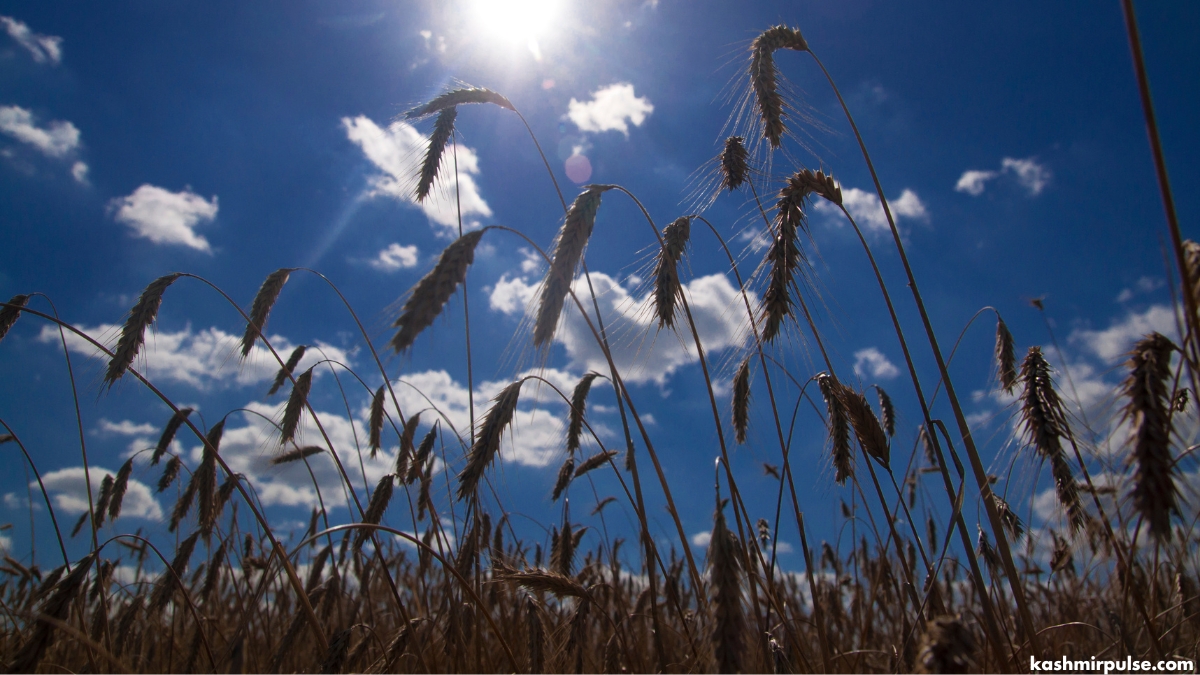Prolonged dry spell threatens crop growth and productivity in Kashmir

SRINAGAR — The ongoing prolonged dry spell this summer is causing immense distress among valley farmers, raising concerns about its severe impact on crop growth and overall productivity.
Officials from the Irrigation and Flood Control (I&FC) Department informed the news agency KNO that due to the extended dry weather and decreasing water levels in the Jhelum River, approximately 10% of irrigation agriculture schemes are being affected.
"We are currently witnessing a significant reduction in the water level of the Jhelum River due to prolonged dry weather conditions. The decreased water level has adversely affected lift irrigation," an official said.
The official further said that the overall water capacity of the Jhelum has decreased by 30% from normal levels, resulting in a 10% impact on irrigation schemes.
Meanwhile, Director Agriculture Kashmir, Choudhary Mohammad Iqbal, said, “Currently, there is moisture in the ground, but if there is no rainfall by next week, both paddy and vegetable crops will be negatively affected.”
“For the growth of paddy and vegetable crops, rainwater is crucial. Presently, there is some moisture in the ground, but without rainfall within the next week or so, adverse effects on both vegetable and paddy fields are anticipated,” Director Iqbal said.
Professor Dr Raihana, Chief Scientist at the Faculty of Agriculture, Sher-i-Kashmir University of Agriculture Science and Technology (SKUAST) Kashmir, said the prolonged dry spell had stressed plants, resulting in stunted growth in both paddy and vegetable crops.
“The extended dry spell has caused the tips of paddy crops to burn, while leaves of vegetables have become dry,” she explained. Dr Raihana added that the high temperatures coupled with the prolonged dry period have led to reduced crop yields, with stunted growth and leaf weathering in vegetable plants.
A considerable portion of the Jhelum River in Srinagar is visibly drying up, with surface patches becoming evident at various points along its stretch.
Another official from the I&FC Department said that over 40% of the Jhelum River in Srinagar has begun to dry up at multiple locations due to the extended dry spell.
“The ongoing dry spell is impacting water bodies. In Srinagar, approximately 40% of the Jhelum River has dried up, with surface patches visible at numerous locations,” the official said.
Farmers said the lack of precipitation and above-average temperatures have severely affected crop growth and development, dealing a significant blow to the region’s agricultural economy.
Several videos circulating on social media purportedly show farmers displaying their dry paddy fields, with young paddy plants also withering due to the dry conditions.
Farmers are anxiously awaiting relief from the dry and hot weather conditions as the prolonged spell continues to challenge their livelihoods and the overall agricultural economy.
This post first appeared on The Kashmir Pulse






